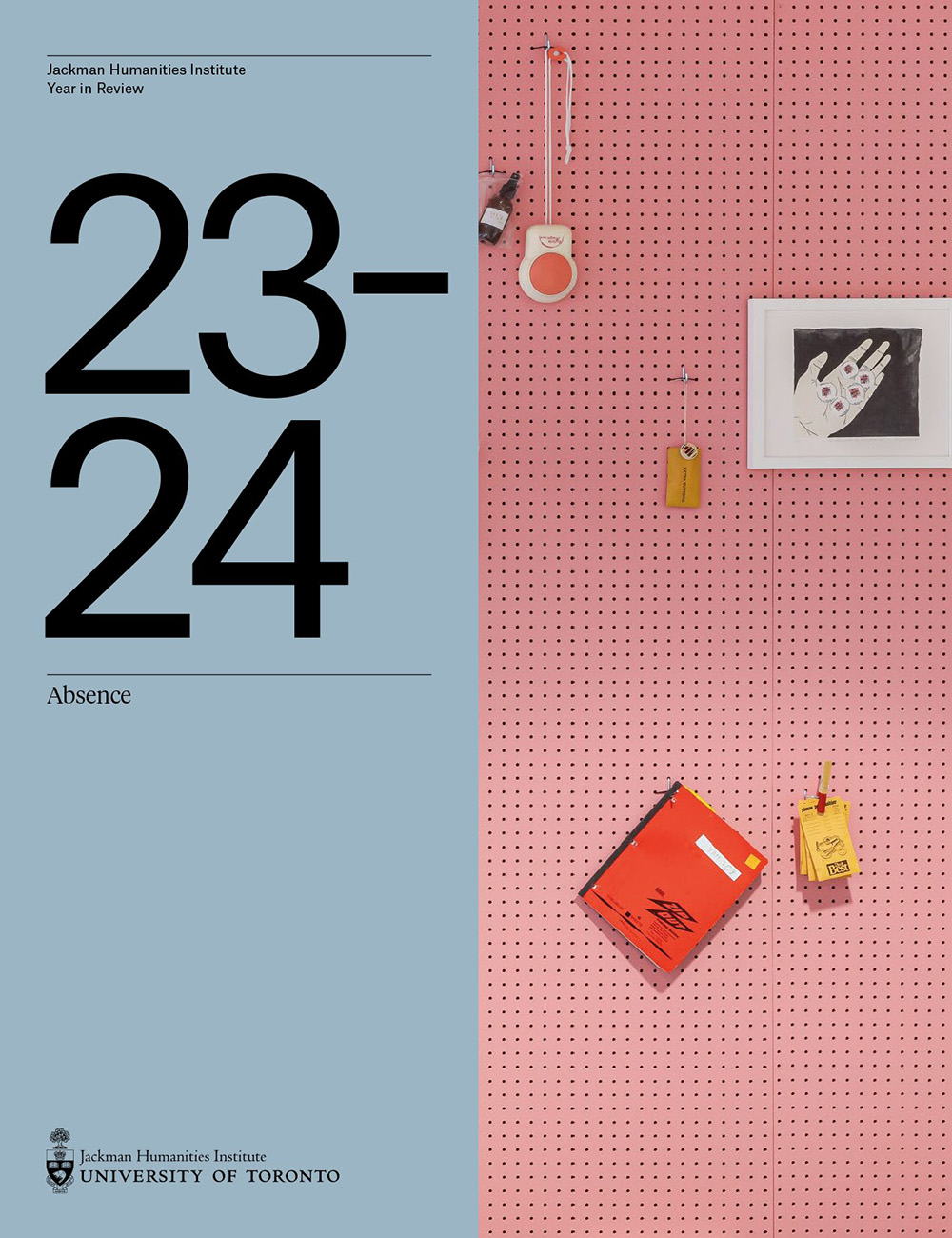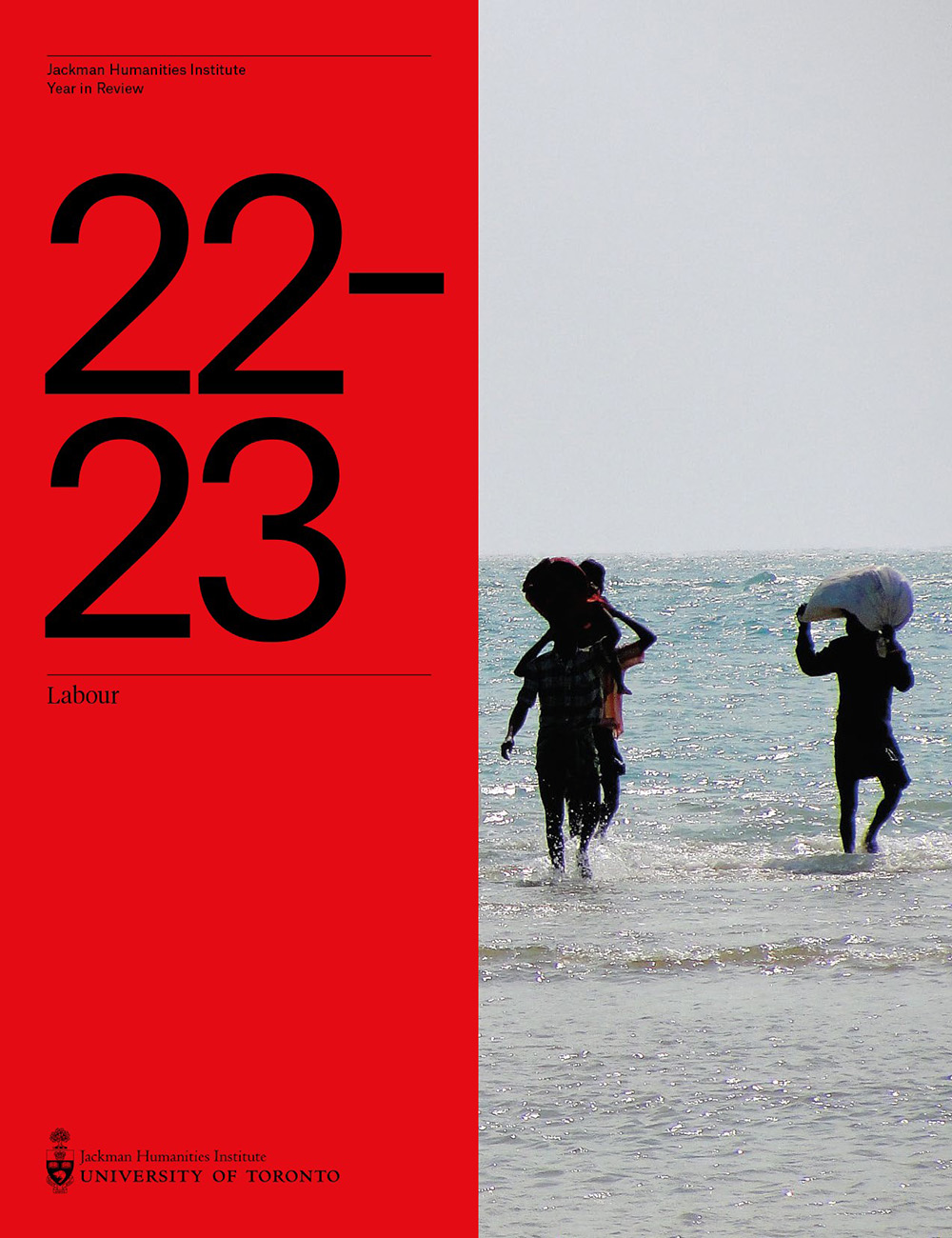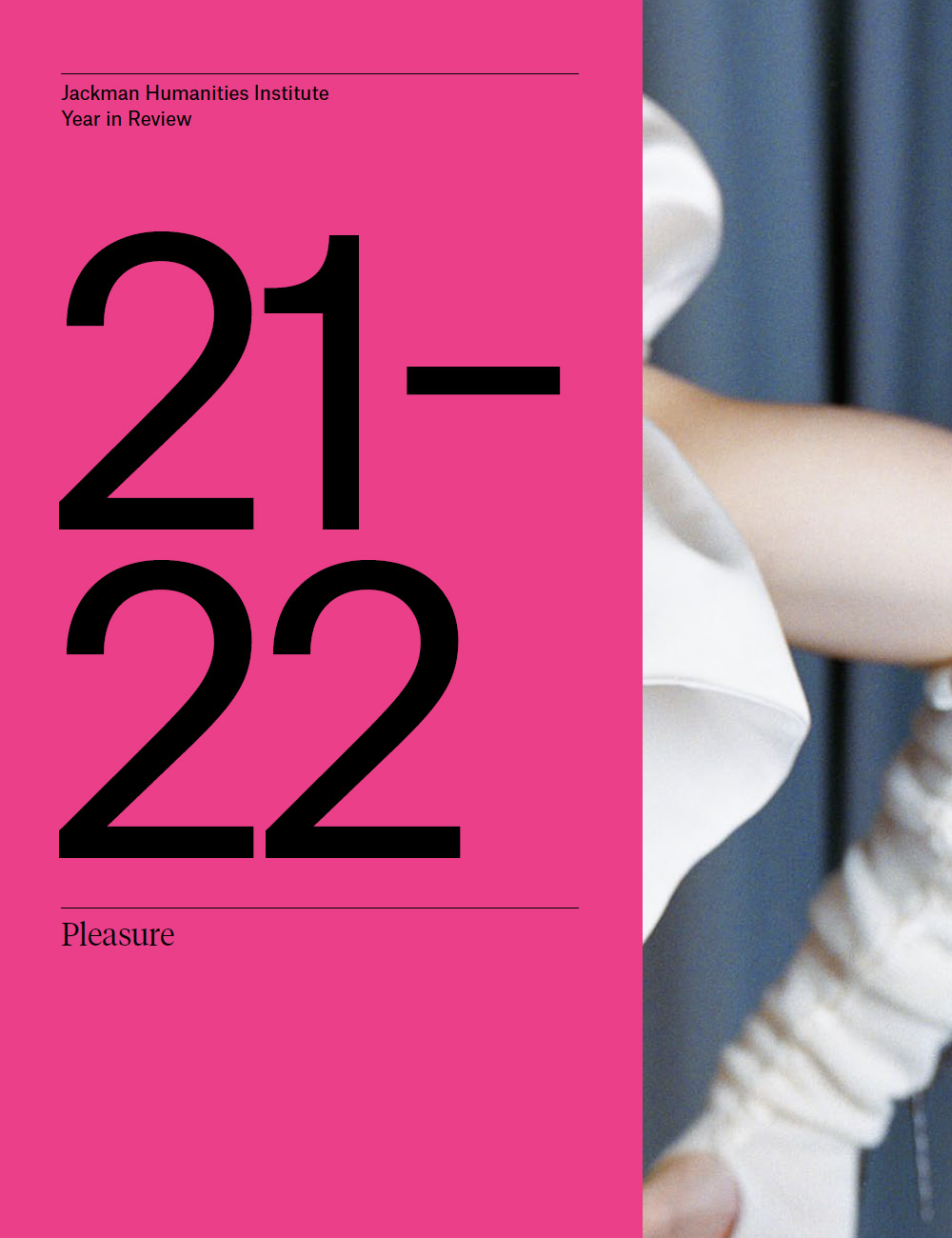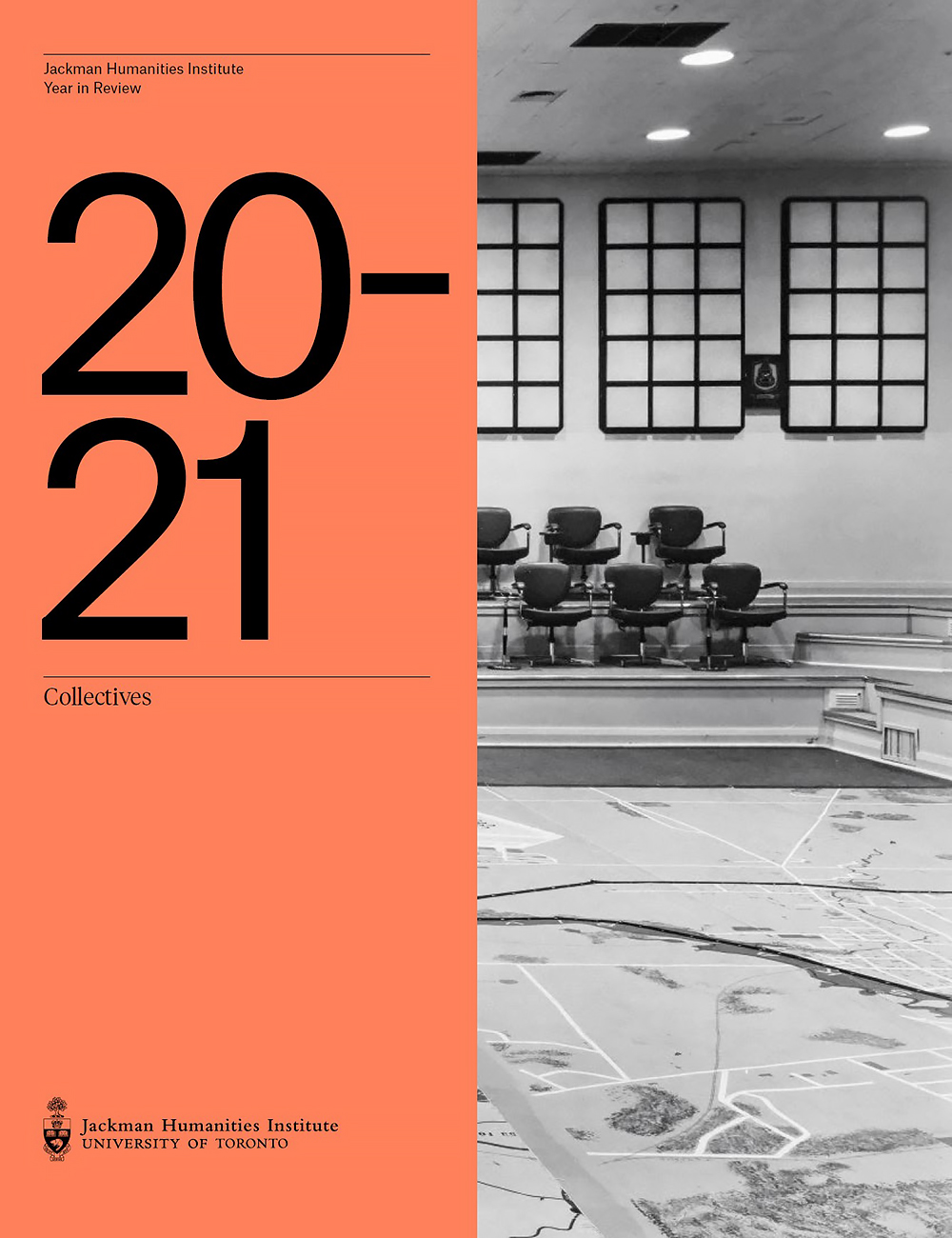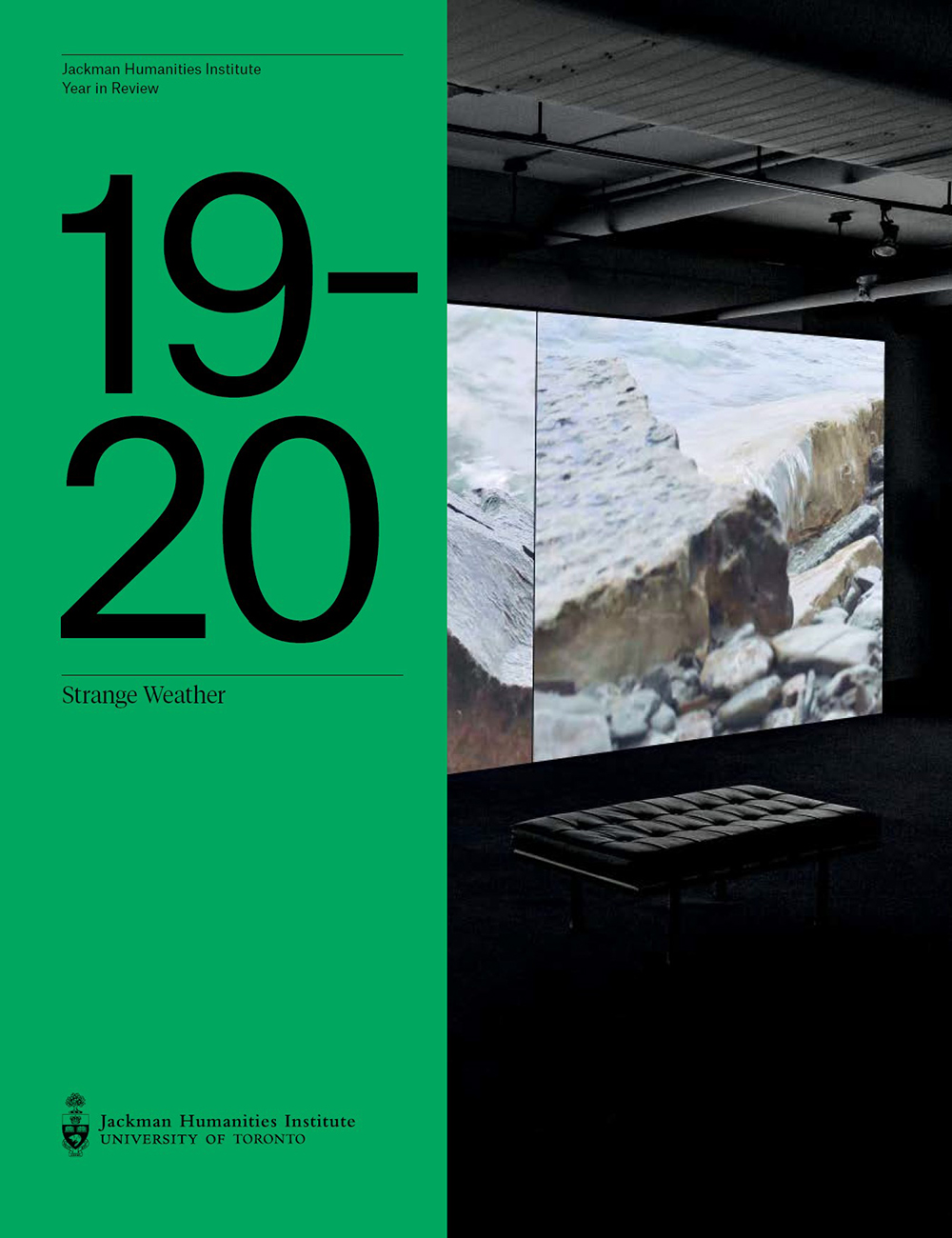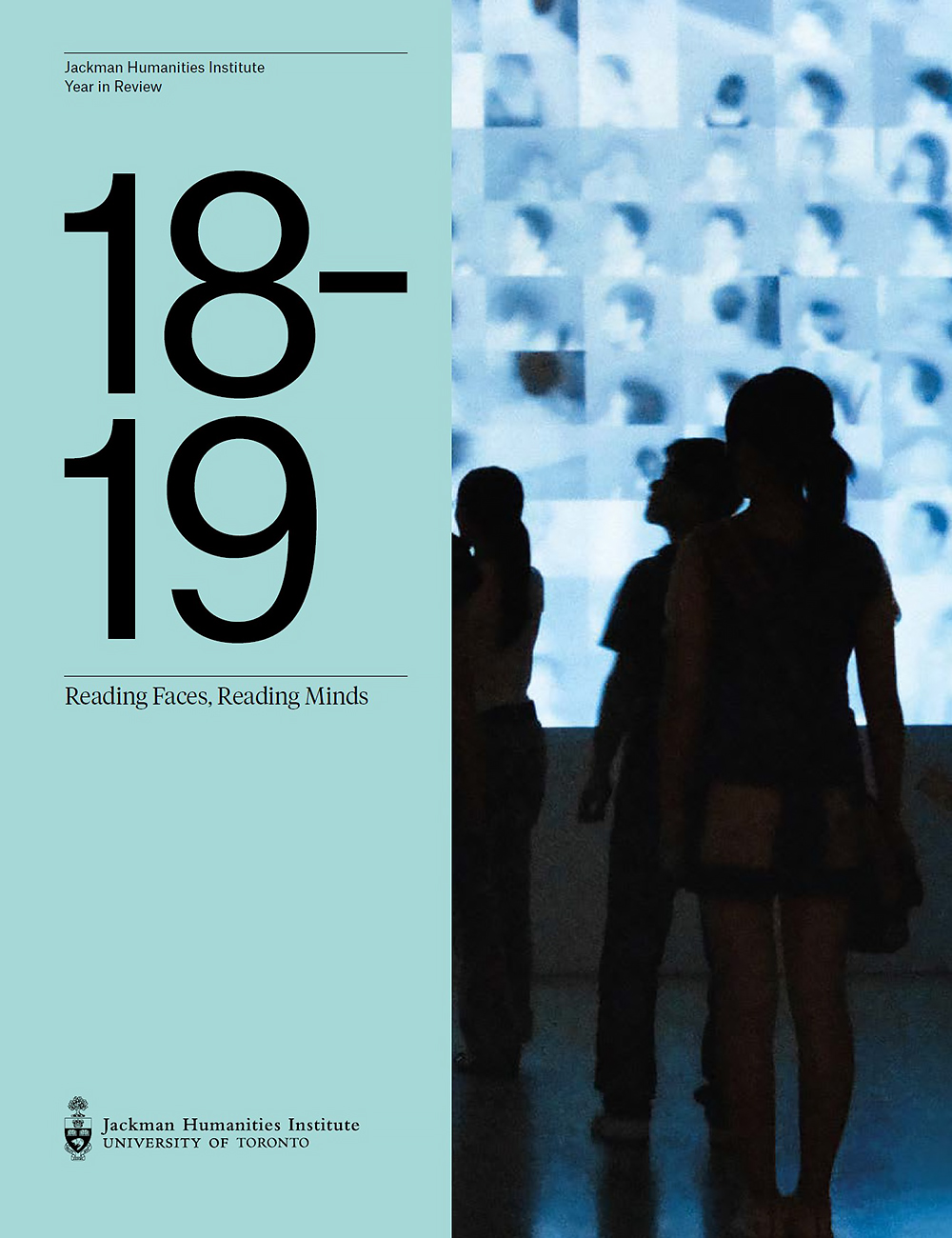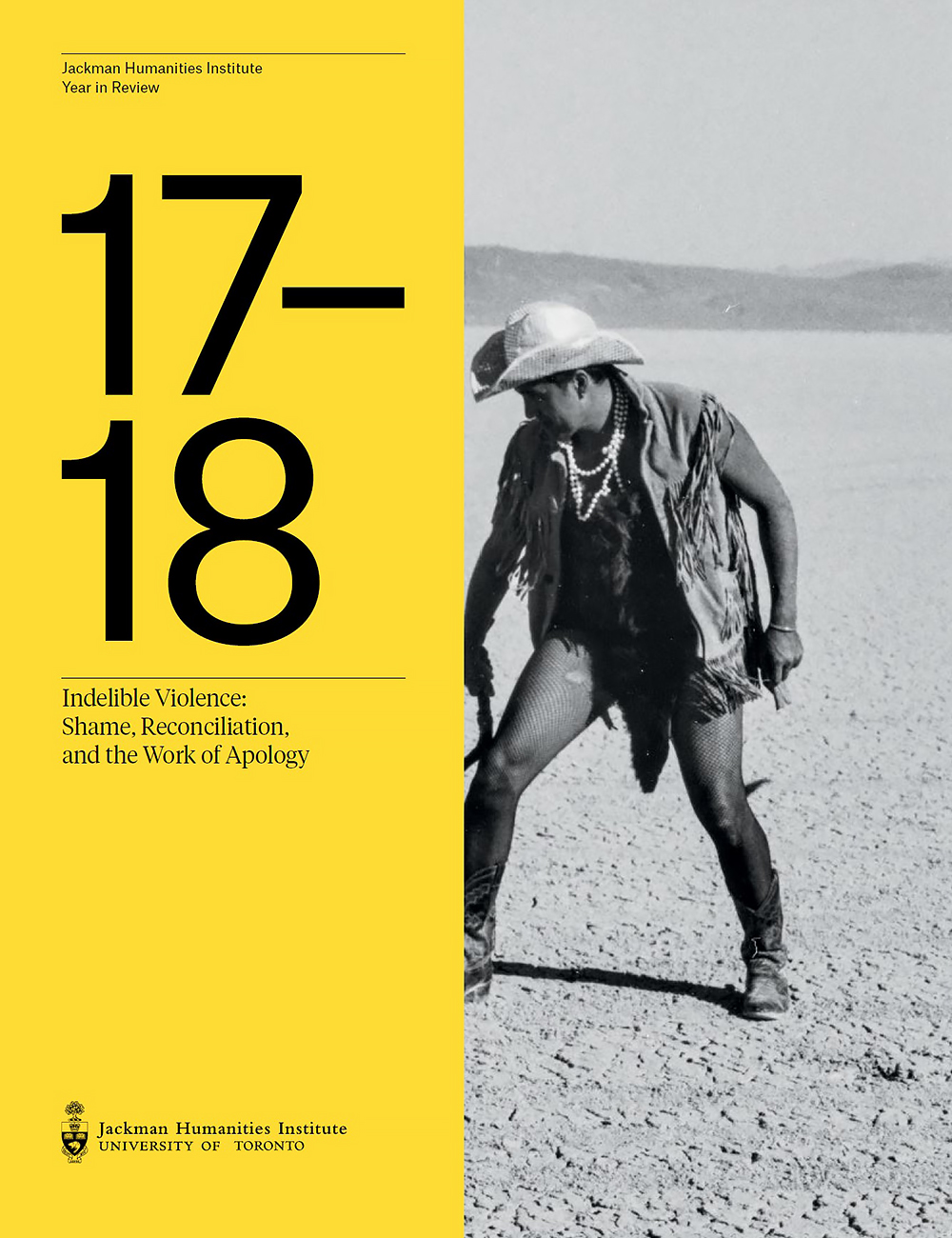The Year in Review is a public facing magazine of our activities for the year; friendlier than the official compilation, it is filled with pictures and impressions of the JHI experience.
2023-24—Absence
Absence takes many forms - absence as loss, abandonment, and omission; absence as exile, separation, and unbelonging; and, paradoxically, absence as boundless, infinite, and transcendent. Ways of knowing, communal memory, as well as personal and cultural identities are all shaped, challenged, and even denied by various types of absences. Voids, silences, privations, gaps and solitudes are forces in themselves. What is not there can be even more powerful than what is there. How does absence affect our views of and place in the world? What meaning can we make of those “blank void regions”? What happens when absence is present? How are today's technologies and our networked world challenging the binary distinction of presence and absence?
2022-23—Labour
From the labour of childbirth to the travail of making a living, human beings are labouring animals who derive meaning and experience meaninglessness in work. Historically, human creativity has long flourished both through and against labour-saving technologies. In a globalizing and climate-changing world, rising nationalist movements call for the fortification of borders that would stop seasonal flows of labour, while women call for pay equity and harassment-free workplaces to allow for the freedom to work in peace. In a world of increasingly precarious labour, thanks in part to automation, what does the future of work portend for both people and the planet? What forms of resistance are possible when workers face both the irrelevance of their labour and its exploitation?
2021-22—Pleasure
Whether understood as light amusement or passionate pursuit, as pure enjoyment, sensual gratification, bliss or hedonism, pleasure may be the most agreeable motivator. Yet pleasure has been described as “curious and appalling,” one of modern civilization’s most deadly poisons. Through its diverse manifestations—as intellectual satisfaction and the pleasures of knowledge, across studies of media audiences, addiction, virtual sex—when, and how, has pleasure become divorced from ideology, politics, and power? Uneasiness concerning pleasure resonates readily with humanists’ tendencies to formulate our subjects of study as constellations of problems, but is there space in our discourses for unironic joy?
2020-21—Collectives
From political parties to literary coteries, from fan groups to sports teams, from terrorist organizations to online groups, our collectives, associations, and communities are multiform and complex. How do we band together and why? In teaming up, how does membership of a collective affect one’s own agency and standing – what do we lose, what do we gain? Can collectives truly be agents and how do group dynamics emerge? How do we balance the interests between collectives, of individuals and collectives, and of the individual within the collective?
2019-20—Strange Weather
How might the humanities contribute to the critical discourse on energy and climate? The energy crisis is no longer simply about limited supplies but now concerns the very nature and place of energy in human life and society. Strange weather as symptom of changing climate destabilizes our trust in and certainty of our home (i.e. our planet) and provokes fantasies of control and of chaos. How can we help frame questions of environmental degradation, scientific knowledge and its popularization, especially in their relation to social equity, and societal futures?
2018-19—Reading Faces, Reading Minds
What does it mean to read—a face, a text, an object, another mind? Human beings use a variety of intuitive and deliberate techniques in an effort to gauge what others feel, want, mean, and know, a sort of ‘mindreading.’ But are the faces we see and voices we hear always representational? While face-to-face encounters have exceptional social significance, the ways in which people encounter each other on stage, in print, and on screens are not transparent. What access to other minds do the humanities afford, and how do the humanities connect to developments in cognitive science and neuroscience? How do notions about reading minds transform what we think we do in reading texts? What is it to recognize the face and to know the mind of another?
2017-18—Indelible Violence: Shame, Reconciliation, and the Work of Apology
Performances of reconciliation and apology attempt to erase violence that is arguably indelible. What ideological and therapeutic work does reconciliation do, under whose authority, for whose benefit, and with what limits? What would it mean to acknowledge the role of shame? How might the work of truth and reconciliation commissions be compared to other ways of shifting relations from violence and violation to co-existence? How does the work of apology stabilize social identities, conditions, and relations and how do indelible traces of violence work for and against those conditions, identities and relations?



